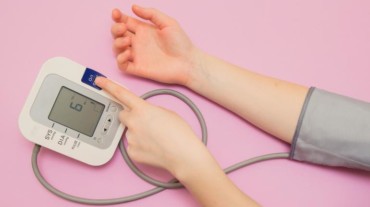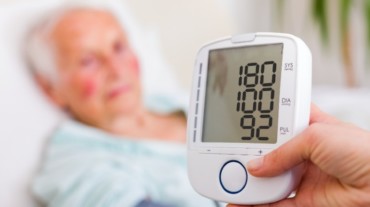
We have all experienced light headedness or dizziness when standing up too fast. While this is a very common phenomenon, there are instances where it can be a concern.
A new study published in the journal Neurology, the medical journal of the American Academy of Neurology, suggests that if you feel dizzy or lightheaded when you stand up, then you may be prone to an increased risk of developing dementia in the later years of life. This condition is called orthostatic hypotension which occurs when we experience a sudden drop in blood pressure upon standing up.
However, the link with dementia is only established with cases where people have a drop in their systolic blood pressure and not in cases where people experience a fall in their overall blood pressure.

What do we mean by systolic blood pressure?
Systolic is the first, or top, number in a blood pressure reading. When there is a drop of at least 15 mmHg after standing from a sitting position, the condition is termed as systolic orthostatic hypotension.
Author of the research, a Pharm.D., Ph.D., Laure Rouch stated that “People’s blood pressure when they move from sitting to standing should be monitored.”
“It’s possible that controlling these blood pressure drops could be a promising way to help preserve people’s thinking and memory skills as they age,” added the researcher, from University of California, San Francisco.

These are the findings of the study
The study involved 2,131 people, who were at an average age of 73 and did not have dementia when they enrolled. At the beginning of the study their blood pressure readings were taken, which were followed by readings taken one, three and five years later. Out of the total, 15% had orthostatic hypotension, 9% had systolic orthostatic hypotension and 6% had diastolic orthostatic hypotension.
In the following 12 years, the participants were evaluated for dementia and a total of 462 of them had actually developed the disease. The people with systolic orthostatic hypotension were nearly 40% more likely to develop dementia than those who did not have the condition. Fifty of the 192 with systolic orthostatic hypotension, or 26%, developed dementia, compared to 412 of the 1,939 people without it, or 21%.
While there are other factors such as diabetes, smoking and alcohol use that contribute to the increase in risk of dementia, those with systolic orthostatic hypotension were 37 percent more likely to develop dementia.

The researchers also found that people whose sitting-to-standing systolic blood pressure readings fluctuated the most from visit-to-visit were more likely to develop dementia years later than people whose readings were relatively more stable.
Select Topics of your interest and let us customize your feed.
PERSONALISE NOWBased on the rate at which their reading fluctuated, the participants were divided into three different groups. A total of 24% of people in the group with the most fluctuation in systolic readings later developed dementia, compared to 19% of the people in the group with the least fluctuation.
When researchers adjusted for other factors affecting dementia risk, those in the highest group were 35% more likely to develop dementia than those in the lowest group.
However, the author understands that the study is observational and does not show cause and effect. It only establishes the fact that there exists a link between blood pressure readings and the development of dementia. In addition to the identifies drawbacks of the study, it is observed that the diagnosis of dementia was made without a distinction between Alzheimer’s disease and vascular dementia.
(With Inputs from ANI)